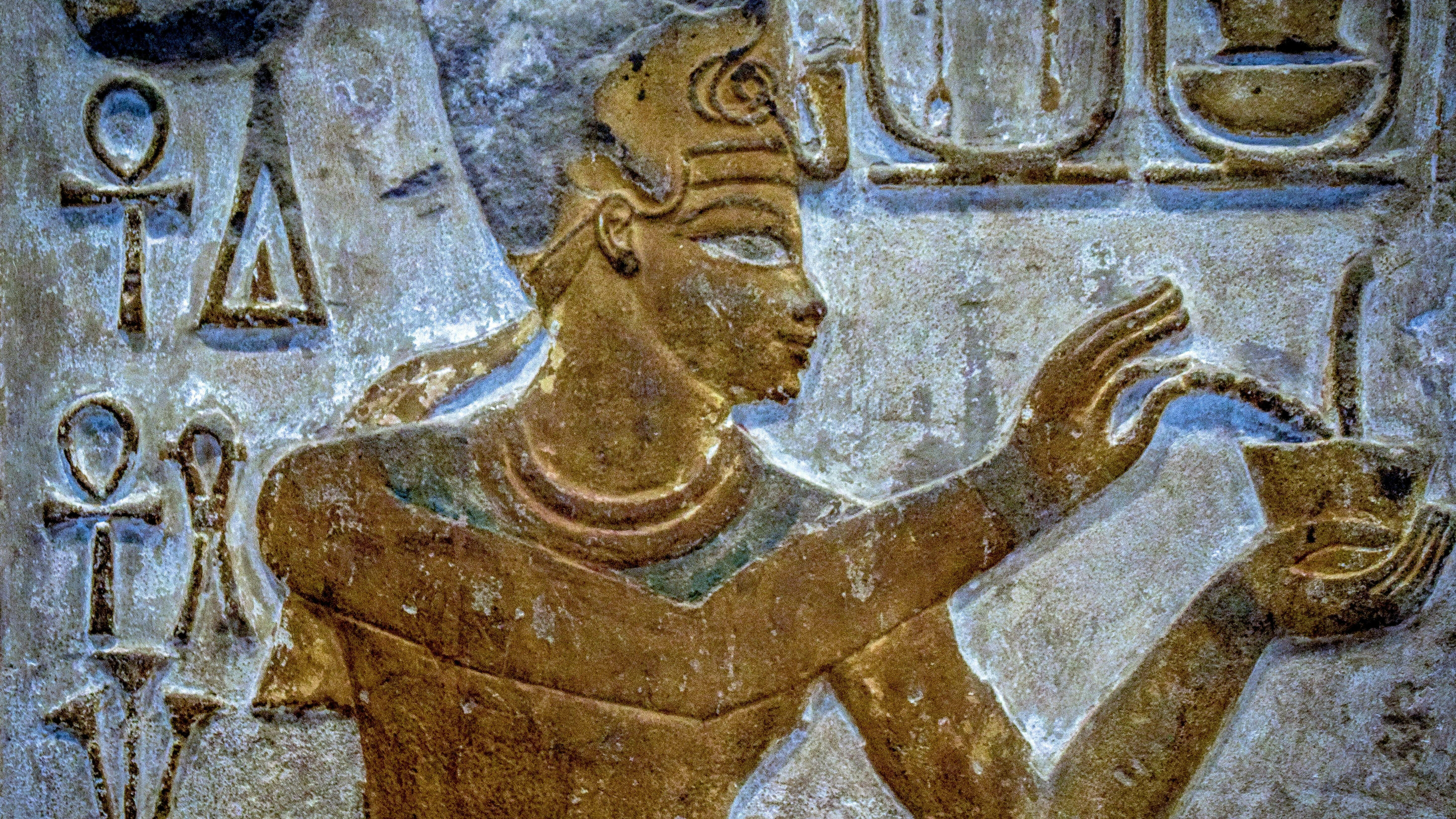TLDR: We have spent several weeks in Bible Musings reviewing the Joseph story in Genesis and comparing it to other stories of scripture. Please read on for a small taste of our class. Join us!
A few years ago, I was having a conversation with a parishioner who had just read the story of Joseph in Genesis (Chapters 37-50.) She noticed then that the story seemed very familiar to her, not so much because of the famous musical, but because, “I think I have read similar stories in the Bible.” I have thought about that conversation as we have entered into Joseph’s story in our Sunday Bible Musings. To cut the story short, our parishioner was absolutely right. The themes of the Joseph story appear often throughout Scripture, and are a perfect preview of themes we see clearly in the New Testament, especially in the story of The Prodigal Son and in the story of Jesus himself. What follows is a comparison between themes in the Joseph story and themes in similar stories in Scripture. This is not an exhaustive comparison, but I find it helpful.
You may remember that Jacob was tricked by his distant uncle, Laban, into marrying both of his daughters, Leah and Rachel (Genesis 29:15-35.) Leah gave him seven children (Reuben, Simeon, Levi, Judah, Issachar, Zebulun, and Dinah;) the slave girl Bilhah gave him Dan and Nephtali; Zulpah, another slave, gave him Gad and Asher, and Rachel gave him Joseph and Benjamin. Joseph was Jacob’s favorite and the father gives him a magnificent gift (A multi-colored robe). This gift, in addition to Joseph’s dreams that one day he would be the most important of the twelve, led ten of his brothers to plan his killing. A quick intervention by Reuben turned the crime from homicide to kidnapping. The siblings sold the young man into slavery to a group of Ishmaelites, who sold him to Potiphar, a captain of the palace guard of Pharoah. His slavery had barely started when Potiphar’s wife fell madly in love with Joseph and accused him of impropriety after he refused her advances on several occasions. Joseph was placed in the palace jail, indicating that perhaps a financial penalty had been ordered to compensate the Egyptian’s honor for the slave’s “offense” against his wife. Joseph used the same skills that made Potiphar’s house successful and helped to administer the prison. He also interpreted the dreams of two men accused of plotting against the Pharoah, and when his interpretation came to pass, one of the men recommended him to interpret Pharoah’s dreams. The successful interpretation of those dreams led Joseph to ascend in power, becoming second only to Pharoah himself. A severe famine in the land brought the same ten brothers to Egypt looking to buy grain. Joseph recognized his brothers and plotted a number of actions to force them to bring Benjamin to him in Egypt. After much drama, which included setting up the brothers for theft and their imprisonment, Joseph revealed himself to his brothers, forgave them, and moved all of them with their elderly father, wives and children to a fertile valley in Egypt, where they survived the famine and thrived.
This story has become the archetype of many themes in Scripture and there are many reasons why this story sounds so familiar to us. In fact, we understanding Joseph helps us understand the captivity in Egypt, Moses’ role in liberating his nation, the miraculous escape from slavery, the Red Sea, the wanderings in the wilderness, the giving of the Law, and several of the events and parables of the New Testament. The following is a comparison between the story of Joseph and other well-known stories in other books of Scripture:
|
Joseph’s Archetypal Detail |
Some others |
Passages |
|
Joseph interprets dreams |
Jacob (His own father) Daniel Joseph (N.T.) |
Genesis 28:12 Daniel 2:24-49; 7:1-28 Matthew 1:20-21 |
|
Joseph is a Jew slave or servant in a foreign court that rises up to a position of power |
Moses Mordecai Daniel
|
Exodus 2 and other Esther 2:8, 4:8-14. Daniel 2:48 |
|
Joseph is a prototypical story of forgiveness that is not based on the merits of the offender, but on the love and mercy of the person who was offended. |
God’s forgiveness of the people in the wilderness. God’s forgiveness of David Ninevah is spared Jesus forgives a woman caught in adultery. Jesus forgives a paralytic man The Prodigal Son Peter is forgiven Paul is forgiven |
Exodus 15:22-18:27
2 Samuel 12:13-14 Jonah 3:10 John 8:1-11
Luke 5:17-26 Luke 15:11-32 John 21:15 Acts 8 and 9 |
|
Joseph is a Jew in a foreign court who is in a position to save/help Israel |
Moses Mordecai and Esther Daniel |
Exodus 14 Esther 4:11-14, Esther 5-10 Daniel 1-12 (A message of hope for Israel) |
There are other points of contact where scripture uses the themes of the Joseph story and develops them further, or where themes of scripture remind us of the themes of the Joseph story. In either case, Joseph remains fundamentally important for us to read and understand. I love how we can see many of the themes of the Joseph story reflected in the story of Jesus: Both are betrayed by those closest to them, both are sold for a few pieces of silver, both undergo considerable suffering, both forgive the wayward deniers and betrayers (unmerited mercy,) both lead their people to salvation (from death in a famine and from sin/death,) both fulfil the Levitical role of the Kinsman Redeemer (a member of the family who pays the price of redemption to save a relative from slavery or suffering. See Leviticus 25,) etc.
Do you want to learn more about Holy Scripture? Join us for our Bible Musings and our Lectionary Bible Study on Sunday mornings at 10:15. We hope to see you there.
Until then, may our Lord continue to bless you,
Fr. Roman+





